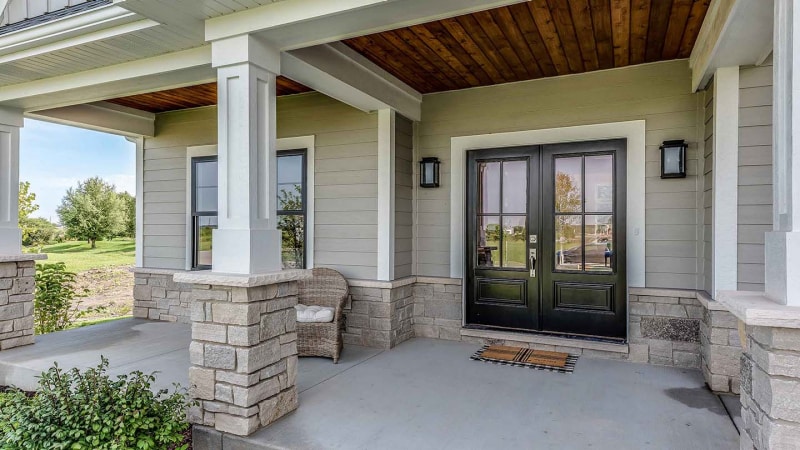Deed restrictions: Definition, examples and how they work

For some, buying a house may be associated with autonomy and freedom — after all, you get to own your place! While this may be true, homeownership could come with a set of rules that govern how to use or remodel the property, called deed restrictions. Let's look at what deed restrictions are, their common types and how they could affect the homeownership experience.
What is a deed restriction?
Deed restrictions (which also could be called restrictive covenants) are specific rules and regulations regarding the use of the property or land, usually imposed and supervised by a homeowners association (HOA). Deed restrictions might dictate what structures can or cannot be built on the land, outline specific property uses, and even determine particular visual elements. Usually, it would apply to all properties in a given community, where the owners must abide by the rules. Homebuyers may typically find deed restrictions disclosed in the contract when buying a deed-restricted home. If not, there are other ways to discover this information. Paying attention to whether there are any deed restrictions and what they are could help avoid potential misunderstandings and issues in the future.
What are some common examples of deed restrictions?
Generally, a restrictive covenant could involve various subjects, and there is no unified list that would document what an HOA might regulate. That said, some typical deed restrictions may include:
- Style or height of a fence and the materials used for it.
- Types of structures homeowners can construct on the property.
- Paint colors allowed for the home exterior.
- Types of animals or pets residents are allowed to keep, if any.
- Planting or removal of trees and hedges.
- Ways the property can be used (renting, business use, etc.).
- Types of vehicles allowed for parking.
Pros and cons of living in a deed-restricted property
Housing in deed-restricted communities comes with its own advantages and drawbacks. It may benefit homebuyers to factor them in when deciding whether to purchase a property with restrictive covenants in place. Here’s a closer look:
Pros of deed-restricted housing
- Assistance in protecting property values and quality of life across the community.
- Less ambiguity in case of homeowners' disputes, thanks to set and documented rules.
- Deed restrictions are common in communities with additional amenities for residents, such as pools, gyms and clubhouses.
Cons of deed-restricted housing
- Rules regarding property use or exterior design may seem limiting to homeowners.
- Violating deed restrictions may trigger fines and penalties.
- Selling a house may be more complicated since not all potential buyers might agree with existing restrictive covenants.
How to find deed restrictions on a property
Some potential homebuyers or new homeowners may want to verify if the property is in a deed-restricted community and what the limitations are. There are a few ways to check for that information:
- Talking to a real estate agent who can pull property records.
- Consulting with a homeowners association (if the property is governed by one).
- Reaching out to the local clerk's office, as they can pull historical property records.
- Asking a seller, since they are obligated to disclose any deed restrictions they are aware of.
- Requesting a title company to conduct a title search, which may reveal this information.
How are deed restrictions enforced?
Most commonly, HOAs are the governing bodies that monitor compliance with existing restrictive covenants and enforce them. However, in the areas without HOAs, it may become the local government's responsibility.
Penalties for breaking those restrictions may vary depending on the severity of the issue and whether it's a recurrent problem. It could usually range from a warning letter from an HOA demanding to fix the violation to a fine. If the homeowner continuously declines to address the issue, it could potentially lead to a lawsuit, eviction or foreclosure (in extreme cases).
Can deed restrictions be changed or removed?
Some of the restrictive covenants have an expiration date: For example, a deed restriction might have been adopted in the community when the houses were built, with a 30-year lifespan.
However, if you're not willing to wait years for a restrictive covenant to expire (or if it doesn't have an end date), it could be possible to change or remove it. Let's go through some steps homeowners are likely to take if they seek to change deed restrictions.
- Ensuring the covenant is still functional: Before starting the process of lifting a deed restriction, it may be helpful to confirm whether it still exists by reading its conditions. In certain instances, homeowners (especially in older buildings) could find that the deed restriction expired some time ago and no longer applies.
- Reaching out to accountable parties: To follow this step, it may be necessary to establish whether the HOA or the local government imposes the restrictions. If the HOA is responsible, homeowners could possibly contact them to discuss the procedure of modifying or removing restrictions. Similarly, if it's a municipal rule, it may be possible to bring the issue to a local city council.
- Seek consent or vote: Presenting the case to the council or board and requesting a vote to lift the restrictions might be necessary. Also, it could be helpful to seek the support of neighbors to make the case stronger.
- Submit the necessary forms: To confirm the deed restriction was lifted, all parties might have to sign a deed restriction release form (usually, the template could be found at the local government website or clerk's office). Depending on the local laws, this document might have to be notarized.
In summary
Deed restrictions are rules and regulations that may be enforced by the homeowners association or local government agencies. Typically, they are imposed to unify the exterior looks, protect property values or manage living standards. If buyers find the property they like and want to purchase, checking for deed restrictions may be an essential step toward a happy and stress-free homeownership.
Deed restrictions: FAQs
1. How long do deed restrictions last?
The length of restricted covenants may vary significantly. In some cases, they could apply for 30 or 45 years, after which they expire; otherwise, deed restrictions might have an unlimited duration. For this reason, it may be worth inquiring about it in the context of your home particularly.
2. Are deed restrictions public record?
Yes, information on the deed restrictions is available openly. It can be retrieved from the county records or by turning to a representative at an HOA or your local clerk's office.
3. Can you rent in a deed-restricted community?
Generally, there are plenty of deed-restricted communities where renting (either long- or short-term) is permitted. Even if you live in a deed-restricted community, the restrictions may affect other subjects but still allow for renting



